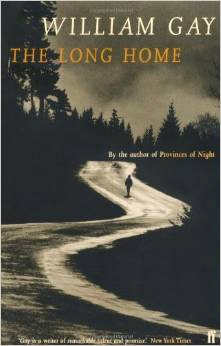Review by Jody Hobbs Hesler
William Gay’s novel The Long Home is epic in scope. Its rural, desolated landscape offers up the sublime as often as it portends doom. Its villain, Dallis Hardin, bends an entire rural community to his evil designs, gaining power from their weaknesses for liquor and prostitutes. Most of the book focuses on its hero, young Nathan Winer, as he pursues an unlikely love and strives to preserve his dignity while working for the devilish Hardin. The book’s sage, though complicated, elder, William Tell Oliver, opens and closes the story with his struggles to reconcile what he knows about the disappearance of Nathan’s father and his fear of what will happen when he comes forward with the truth. Oliver holds onto his corrosive secret until he must share it in order to prevent young Nathan from an inevitable act of honor-redeeming vengeance that would either land him in jail or in the grave.
Gay’s characters range from solid and kind to phantasmagorically evil. But even his best characters are flawed by pride and poorly-timed righteous indignation, and his worst characters offer glimmers of humanity. So The Long Home pits good against evil, but the rivalry is not entirely fabular but true and possible, too. All this against a backdrop of a 1930s – 40s rural Tennessee, where not everyone has electricity or telephone service, and a lot of people run homemade liquor and bury stashes of cash in the ground. They are dirt-poor dirt farmers, bootleggers, day laborers. They live (and die) by the work of their hands: honestly, dishonestly, generously, greedily – in a web of their own histories full of double-crossings and death. Continue reading
![[PANK]](https://pankmagazine.com/wp-content/themes/pank/assets/images/pank-logo-large.png)

